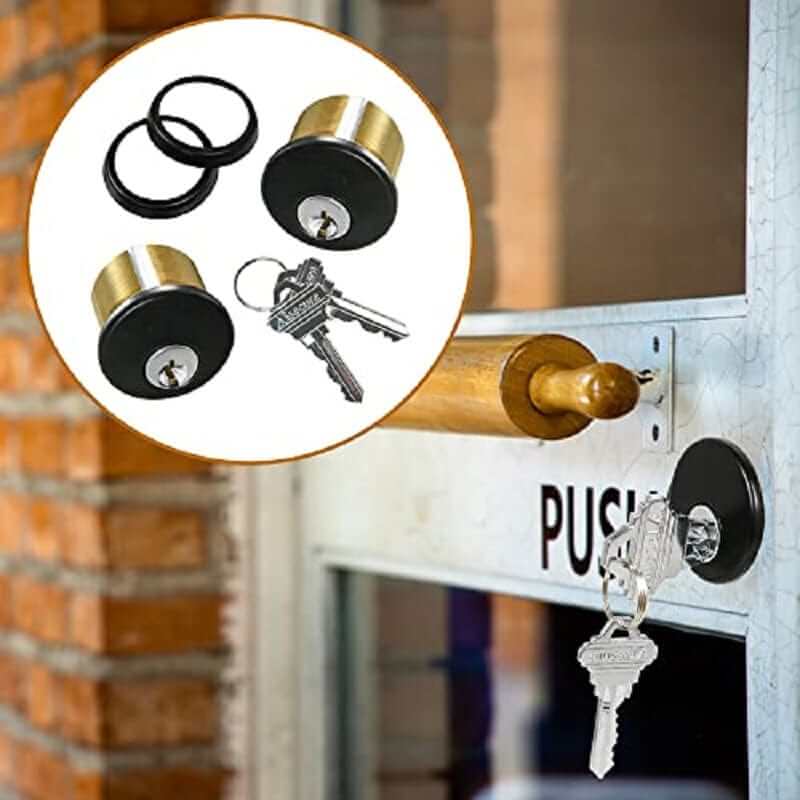
Are Door Bolt Locks Enough for Sliding Patio Doors in Commercial Use?
Share
When it comes to securing commercial spaces, one of the most common concerns is the security of sliding patio doors. These doors, which are often used in restaurants, cafes, and retail stores, offer a combination of aesthetics and convenience, but they also present unique security challenges. One of the key questions that business owners often ask is whether a simple door bolt lock is enough to ensure the safety of sliding patio doors in commercial settings.
The simple answer is no—door bolt locks may not provide sufficient security for sliding patio doors in commercial use. While a door bolt lock can be effective for residential applications, they are often inadequate for the security demands of a commercial space. In this article, we will explore the reasons why a door bolt lock may not be enough and discuss better alternatives to ensure that your sliding patio doors are properly secured.
Understanding Sliding Patio Doors
Sliding patio doors are designed to move horizontally along a track, making them ideal for spaces where traditional swinging doors are not feasible. They are commonly used in commercial spaces due to their ability to allow natural light into a room, save space, and provide easy access. However, the horizontal movement of these doors presents some security concerns.
The primary challenge with sliding patio doors is that they can often be easily bypassed if not properly secured. Unlike hinged doors, sliding doors are more vulnerable to being lifted off their tracks or pried open. Standard locking mechanisms, such as doorknob locks or door bolt locks, may not provide adequate protection against these tactics.
Why Door Bolt Locks Are Not Enough
Sliding patio doors often require specialized locking mechanisms designed to address the unique vulnerabilities of their structure. A door bolt lock, while it can offer some degree of security, does not fully protect against the specific risks posed by sliding doors.
Door bolt locks are typically designed for hinged doors, where they can effectively prevent the door from swinging open. However, on sliding doors, the bolt often only secures the door at one point, making it easier for intruders to bypass. If the door is not properly aligned or if the bolt is not installed correctly, it can be relatively easy to force the door open.
Moreover, door bolt locks may be vulnerable to picking, tampering, or forced entry. Commercial spaces, especially those with high foot traffic or valuable merchandise, need stronger, more reliable locks that can withstand these types of threats. A door bolt lock does not offer the level of resistance needed for high-security applications.
The Importance of Commercial Door Locks
For businesses that rely on commercial door locks, a higher level of security is required. Commercial door locks are specifically designed to meet the security needs of businesses, offering features like anti-pick cylinders, reinforced strike plates, and multi-point locking systems that provide a higher level of protection than residential locks.
When it comes to sliding patio doors, commercial-grade locks are essential. These locks are designed to secure the door at multiple points along the frame, making it much harder for intruders to force the door open. Many commercial door locks for sliding doors also include anti-lift mechanisms that prevent the door from being lifted off its tracks, a common vulnerability in sliding door systems.
Additionally, commercial door locks are made from high-quality materials, such as stainless steel, which offer superior durability and resistance to tampering or drilling. They are also typically built to withstand more frequent use, which is important in commercial environments where doors are constantly opened and closed throughout the day.
Alternative Security Solutions for Sliding Patio Doors
While door bolt locks may not provide enough security for sliding patio doors in commercial settings, there are several alternative solutions that can offer better protection:
- Multi-Point Locking Systems: These locks secure the door at multiple points along the frame, making it much more difficult to pry open or lift the door.
- Anti-Lift Mechanisms: Sliding doors can be equipped with anti-lift devices that prevent the door from being removed from the track.
- Reinforced Strike Plates: A reinforced strike plate provides added protection against forced entry by securing the lock in place.
- Security Bars: A security bar can be installed along the bottom of the sliding door to prevent it from being moved, even if the lock is compromised.
- Smart Locks: For added convenience and security, businesses can install smart locks that provide keyless entry and can be monitored remotely.
In conclusion, while a door bolt lock may offer some level of security for sliding patio doors, it is not sufficient for commercial use. Sliding patio doors present unique security challenges that require specialized locking systems designed to secure the door at multiple points, prevent lifting, and withstand tampering. Commercial door locks offer a higher level of protection and should be the primary choice for securing sliding patio doors in commercial settings.
By investing in high-quality commercial door locks and additional security features, business owners can ensure that their sliding patio doors are properly secured and that their property is protected from unauthorized access. Whether you choose multi-point locks, anti-lift mechanisms, or smart locks, taking the necessary steps to upgrade your door security will give you peace of mind knowing that your business is safe.

